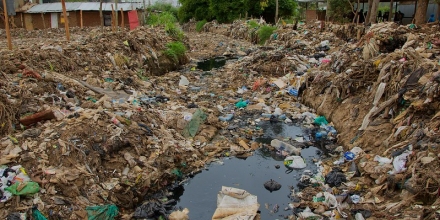The nitrogen legacy: the long-term effects of water pollution on human capital

Event details
ACDE Seminar
Date & time
Venue
Speaker
Contacts
The fallout of nitrogen pollution is considered one of the largest global externalities facing the world, impacting air, water, soil, and human health. This paper combines data from the Demographic and Health Survey data set across India, Vietnam, and 33 African countries to analyse the causal links between pollution exposure experienced during the very earliest stages of life and later-life health. The results show that pollution exposure experienced in the critical years of development—from birth until age three—is associated with decreased height as an adult, a well-known indicator of overall health and productivity, and is robust to several statistical checks. Because adult height is related to education, labor productivity, and income, this also implies a loss of earning potential. The analysis begins within an assessment in India, where the data are more available, and is then extended to geographic settings including Vietnam and 33 countries in Africa. The results are consistent and show that early-life exposure to nitrogen pollution in water can lower height-for-age scores during childhood in Vietnam and during infancy in Africa. These findings add to the evidence on the enduring consequences of water pollution and identify a critical area for policy intervention.
This work was part of the flagship report of the World Bank titled “Quality Unknown: The Invisible Water Crisis”. Water quantity—too much in the case of floods, or too little in the case of droughts—grabs public attention and the media spotlight. Water quality—being predominantly invisible and hard to detect—goes largely unnoticed. Quality Unknown: The Invisible Water Crisis presents new evidence and new data that call urgent attention to the hidden dangers lying beneath water’s surface.
Updated: 25 July 2024/Responsible Officer: Crawford Engagement/Page Contact: CAP Web Team











